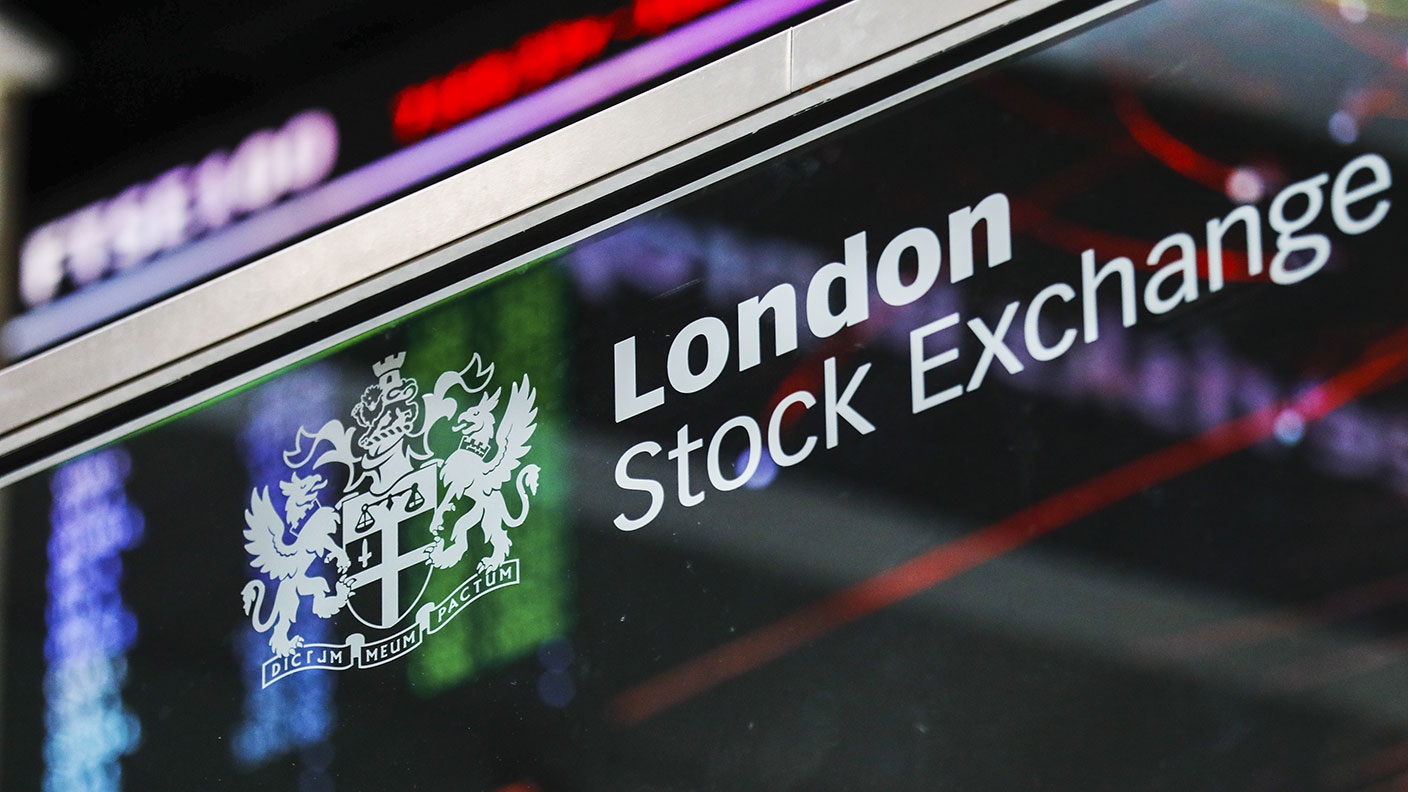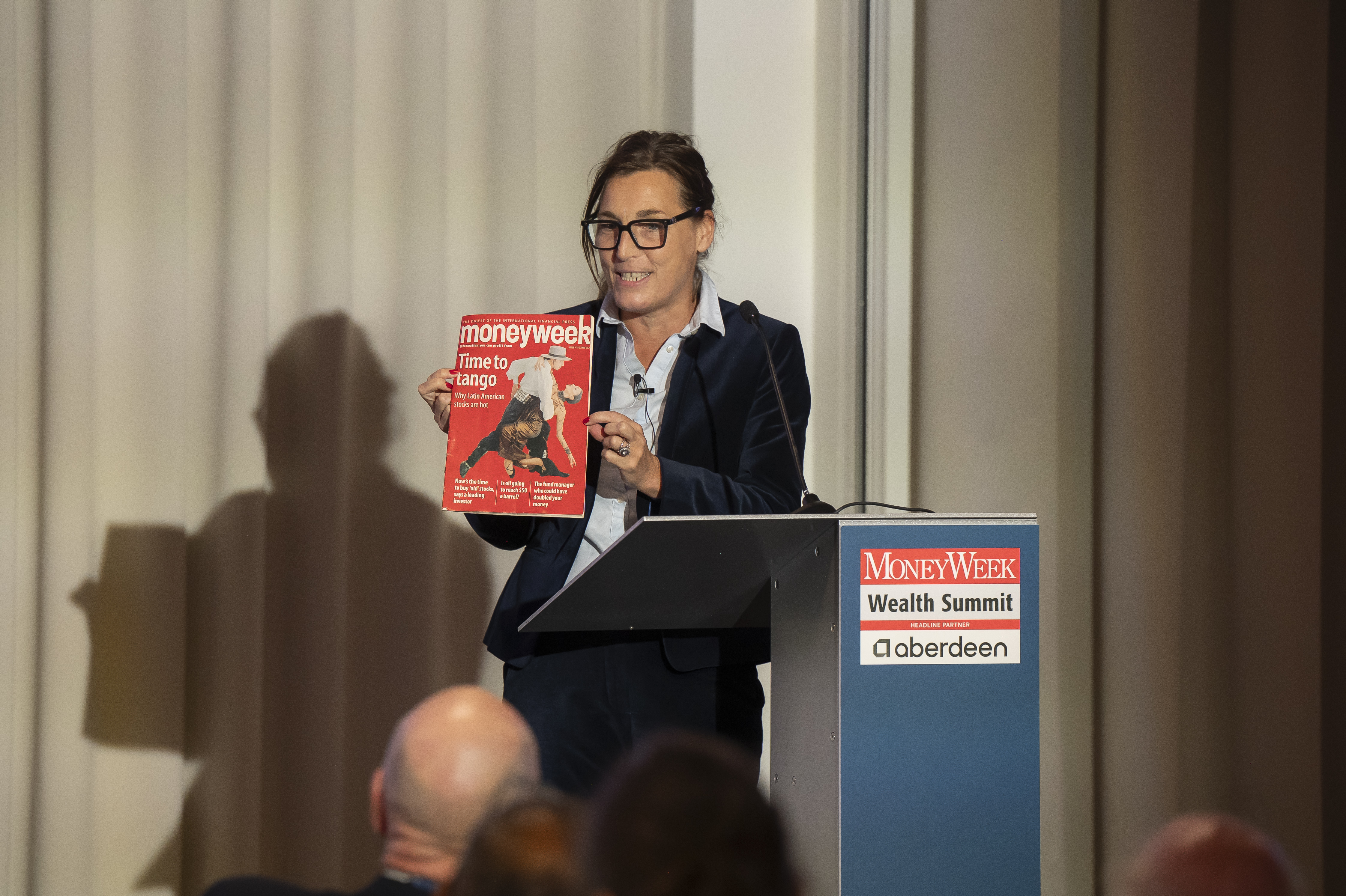Value is starting to emerge in the markets
If you are looking for long-term value in the markets, some is beginning to emerge, says Merryn Somerset Webb. Indeed, you may soon be able to buy traditionally expensive growth stocks on the cheap, too.


Get the latest financial news, insights and expert analysis from our award-winning MoneyWeek team, to help you understand what really matters when it comes to your finances.
You are now subscribed
Your newsletter sign-up was successful
Want to add more newsletters?

Twice daily
MoneyWeek
Get the latest financial news, insights and expert analysis from our award-winning MoneyWeek team, to help you understand what really matters when it comes to your finances.

Four times a week
Look After My Bills
Sign up to our free money-saving newsletter, filled with the latest news and expert advice to help you find the best tips and deals for managing your bills. Start saving today!
How are the mighty fallen – the Nasdaq has had its worst week since March 2020 and is down by 28% this year.
Scottish Mortgage is down 41% in the year to date – and is no longer the largest investment trust in the UK – while the Ark Innovation ETF in the US is down 59% in 2022.
Both investments massively outperformed any index you care to choose over the past five years; both have now given up the majority of that outperformance. Just like that.
MoneyWeek
Subscribe to MoneyWeek today and get your first six magazine issues absolutely FREE

Sign up to Money Morning
Don't miss the latest investment and personal finances news, market analysis, plus money-saving tips with our free twice-daily newsletter
Don't miss the latest investment and personal finances news, market analysis, plus money-saving tips with our free twice-daily newsletter
Look at a few individual stocks and you can see the pain: Netflix is down 70% from its highs, Amazon 40% and Tesla 40%. This, Scottish Mortgage manager Tom Slater told a conference this week, has been the worst start to a year for growth stocks in 90 years.
On the face of it he is absolutely right; look at the way different investment styles have performed so far this year and you can see that growth is very much out of favour. Numbers from Waverton Asset Management show that if you divide the MSCI AC World Index up by style it is what the analysts call “high growth” that is really taking the hit this year so far – down 23.1%. Next up (or down, should I say) is “growth” – down 10.9%.
Look at it by sector and you will see something similar – those that have given us the most growth in value are the ones now suffering the most. This year, consumer discretionary stocks inside the S&P 500 are down 30% – pity the holders of Peloton, down 85% in the past 12 months.
Communication services are down 26% this year and information technology is down 21%.
But compelling as the growth-is-out-of-favour argument sounds, it is not the whole story. We might instead say that this has been the worst start to a year for very expensive stocks in 90 years.
Value stocks are outperforming growth stocks
Look again at the investment style split and you will see that the outperformance comes from value stocks. Waverton says stocks it categorises as “deep value” are up 5.6% on the year, while value stocks are up 2.1%.
Look at the sector breakdown and the stuff that has gone up is not necessarily stuff that is the opposite of growth – it is just stuff that wasn’t expensive before. So energy is up 38% and consumer staples are more or less flat.
Andrew Lapthorne of Société Générale sees it like this too. Disentangle the data, he says, and you can see that it is the most expensive quintile of stocks that is moving most: down 30% from its highs in the US and 20% in Europe.
Compare and contrast as well, the overall performance of the S&P 500 and the FTSE 100: the latter ended last year looking expensive in terms of price/earnings (p/e) ratio; the former ended it fairly reasonably cheap.
But it is the US index which is down 18% so far this year, and the London one which is down by only 3%. The truth is that while it is growth stocks that are falling fastest, they are probably not falling purely because they are growth stocks but because they are – in some cases we can now say were – expensive stocks.
It is not entirely straightforward, of course. Growth stocks have been expensive largely because, with interest rates so low, markets have been prepared to pay for the expectation of high future earnings (jam tomorrow).
This is just maths – and when interest rates rise, or are expected to rise, the dynamic reverses. Investors are prepared to pay less for promises of jam tomorrow, however innovative and exciting it might be, and more for jam now.
Today, inflation is both far too high and far too sticky for comfort – the US consumer price index came in just above expectations at 8.3% this week. And rates are obviously expected to rise.
So the fall in share prices of the big names is not really a comment on the likely success of their businesses. There is some concern about earnings growth falling into a recession, of course – which makes being absolute about anything hard.
But, in general, few people have sold Moderna because they think a rise in interest rates makes its vaccines business less good, or Tesla because they no longer believe in computers on wheels, or Ocado because they no longer think warehouse automation is kind of cool. They have been selling because in a world of slightly tight monetary policy, January’s share prices were wrong; investors have not turned against growth so much as the price of growth. That’s it.
You can blame any losses you might have on inflation, on war, on Chinese lockdowns, or on the US Federal Reserve, or whatever, but you will also know that had we entered this nasty environment with cheap markets they would have been much less likely to spark a bear market.
“Growth” may soon be cheap, too
So will prices go back up to their previous levels? Sure they will, if the underlying companies eventually show the market the money. What they may not achieve is the heroic p/e levels they hit last year.
Earnings now matter. If you want a historical comparison for this, look at January 1969 to June 1970. Share prices had doubled in the previous two years. That made them expensive – the UK All Share Index was on a historic p/e of 23 times against 13 times when the bull market began.
Then, labour relations began to turn nasty, interest rates shot up, with the benchmark yield going from 6% to over 9%, and the UK chancellor decided to do a bit of fiscal showing off by putting up both employment and corporate taxes. Does this sound familiar? The London stockmarket fell 36.6%. Depressing stuff.
There is a glimmer of hope. The past few weeks have done wonders for valuations. William Dinning of Waverton has done the numbers. This week he had global equity markets on an average forward p/e of 15.2 times (it could be lower by the time you read this!).
That is the lowest level since the bear market of early 2020 (when it was 14.1 times). On Dinning’s numbers the US is still at the upper end of its historic, 20-year, p/e range. But take that out and the rest of the world is below its historic average. A few markets – the UK stands out on a forward p/e of 10.4 times – are trading at “meaningful discounts” to historic averages.
That doesn’t mean the bear market is over. A recession, very possible at this point, would hit earnings and so crash the “e” in p/e. But it does suggest that if you are looking for long-term value, some is beginning to emerge. Not long now and you may even be able to buy cheap growth.
• This article was first published in the Financial Time
Get the latest financial news, insights and expert analysis from our award-winning MoneyWeek team, to help you understand what really matters when it comes to your finances.

-
 Early signs of the AI apocalypse?
Early signs of the AI apocalypse?Uncertainty is rife as investors question what the impact of AI will be.
-
 Reach for the stars to boost Britain's space industry
Reach for the stars to boost Britain's space industryopinion We can’t afford to neglect Britain's space industry. Unfortunately, the government is taking completely the wrong approach, says Matthew Lynn
-
 Key lessons from the MoneyWeek Wealth Summit 2025: focus on safety, value and growth
Key lessons from the MoneyWeek Wealth Summit 2025: focus on safety, value and growthOur annual MoneyWeek Wealth Summit featured a wide array of experts and ideas, and celebrated 25 years of MoneyWeek
-
 What is Vix – the fear index?
What is Vix – the fear index?What is Vix? We explain how the fear index could guide your investment decisions.
-
 The outlook for stocks is improving
The outlook for stocks is improvingThis is the best of times for investors, says Max King. Global risks are receding, but few have noticed.
-
 The building blocks for an income strategy: resilience, growth and diversification
The building blocks for an income strategy: resilience, growth and diversificationAdvertisement Feature Iain Pyle, Investment Manager, Shires Income plc
-
 Investment platforms offering measly interest rates on cash holdings – is your cash working hard enough?
Investment platforms offering measly interest rates on cash holdings – is your cash working hard enough?The interest rate on cash you hold within an investment account can be as low as 0.75%. We look at the worst cash rates on the market, and what you should do with your cash instead.
-
 Rethinking ESG investing
Rethinking ESG investingAnalysis Sustainable ESG funds are coming under attack for a lack of focus. Investors need to be selective
-
 Can a woman deliver you better returns?
Can a woman deliver you better returns?Tips Women often make better stock pickers than men, delivering stronger returns for investors - but with fewer females managing funds, how can you make sure you take advantage of the feminist touch when picking funds? Kalpana Fitzpatrick on how to filter funds run by women and why it matters.
-
 Flat fees vs percentage fees - are you paying too much for your investments?
Flat fees vs percentage fees - are you paying too much for your investments?We investigate whether it’s better to choose an investment platform with flat fees, or whether percentage charges could work out cheaper.